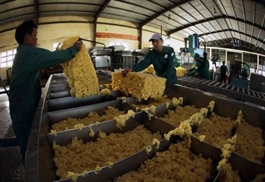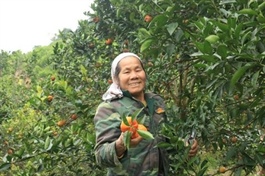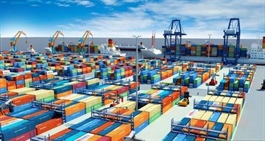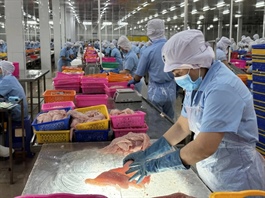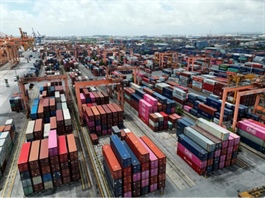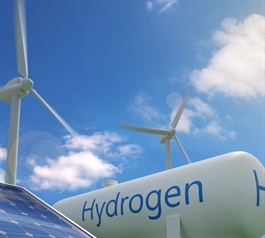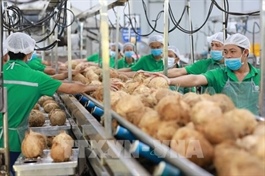Green transition creating challenges for garments and textiles SMEs
Green transition creating challenges for garments and textiles SMEs
Vietnam has signed 16 free trade agreements (FTAs) with the international community, creating the conditions for firms to expand into new markets and boost profitability, while also posing numerous challenges with their increasingly stringent 'green growth' requirements.

The resulting push for a 'green transition' is creating mounting challenges to small- and medium-sized enterprises (SMEs) in the garments and textiles industry as export partners tighten their environmental protection requirements.
Pham Quang Anh, director of Dony Garment Co., Ltd. based in Ho Chi Minh City’s Tan Binh district, said, "The greatest difficulty lies in the supply chain as it goes beyond the influence of Vietnamese firms."
Of the many factors affecting green production, recycled materials play a crucial role, but they can be over 20 per cent more expensive than traditional resources.
Just 15 per cent of textile apparel firms have reportedly been or are embracing the green transition journey
The increasing cost of other factors such as machinery and accessories means the final production expense could be double that of similarly designed products using non-recycled materials.
According to Pham Van Viet, deputy chairman of Ho Chi Minh City Association of Garments, Textiles, Embroidery and Knitting, just 15 per cent of textile apparel firms have reportedlybeen or are embracing the green transition journey.
“These issues represent challenges, yet also opportunities, to the sector. Those who perform well can win the trust of their customers and secure long-term business deals,” said Viet.
Nguyen Thi Tuyet Mai, deputy general secretary of the Vietnam Textile Apparel Association, said, "Over 80 per cent of SMEs in the sector face a lack of finances to fully embrace the green transition, and complex regulations make businesses more hesitant to do so."
"Most businesses in the sector feel pressure to adhere to the new green requirements from their partners, particularly regarding rooftop energy requirements," said Hoang Thanh Nga, sustainable textile programme manager at WWF Vietnam.
Between 2019-2020, Vietnam witnessed a boom in the solar power development, followed by a halt in development, creating an impasse for investors, particularly regarding power-grid connections.
Currently, the green transition relies on several factors, such as technology concerns and economic efficiency, as businesses are unsure whether the required investment is just too big a risk at this time.
“It is a matter of access to capital. We have supported many businesses in this regard, but it is important to state clearly the potential role of banks in helping firms unlock more financing,” said Nga.
Many in the industry concede that the transition to more eco-friendly practices will be a lengthy exercise, spanning the breadth of the production process from design and fibre manufacturing, to dyeing and tailoring.







